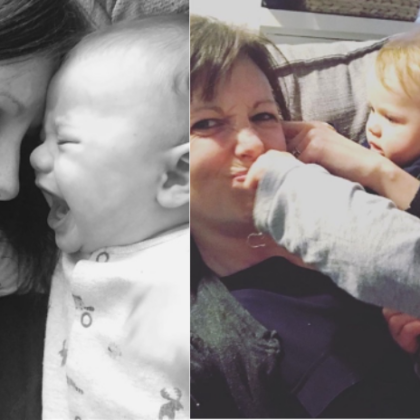Repairing the soul: Cognitive Therapy for Moral Injury after Trauma
The February BABCP Article of the Month is from the Cognitive Behaviour Therapist and is entitled “Cognitive Therapy for Moral Injury in Post-Traumatic Stress Disorder” by Hannah Murray and Anke Ehlers
Media images of healthcare professionals overwhelmed and exhausted by a relentless torrent of seriously ill and dying patients have filled our screens over recent weeks. For some, there is a pain beyond the usual psychological pressure of the job or the sadness of a patient’s death, which is the feeling that patients have been let down, for example because the constraints and pressures of the pandemic compromised the care they received. For other staff, it is a sense of betrayal which is keenly felt – that leaders, both local and national, have failed to support and protect staff in health and social care services.

This experience can be understood as moral injury: the profound psychological distress which can arise after perpetrating, failing to prevent, or witnessing events which transgress an individual’s moral or ethical code, or a betrayal by leaders – an additional twist of the knife after trauma. Generally researched only in military samples, we believe that moral injury is a prevalent psychological experience in civilian populations as well. The recent pandemic has shone a spotlight on healthcare workers (e.g. Williamson, Murphy, & Greenberg, 2020), but other occupational groups are at risk as well: journalists who witness, but cannot prevent, atrocities and hardship; probation officers managing offenders who harm others again; social workers who fail to spot abuse or who are unable to help; and so many more. Indeed, moral injury can follow many types of trauma: road traffic accidents where someone has been killed; refugees who escape a life-threatening situation but know that others remain under threat; torture survivors who give up information about others under duress; abuse survivors who learn that the perpetrator went on to harm others.
Therapists understandably struggle with these cases, for personal reasons, given the upsetting, shocking nature of the experiences, which sometimes challenge our own worldview and morals, but also in knowing how to help. After all, in many cases, clients presenting with moral injury do have genuine responsibility for harm coming to others, or are rightfully furious at being betrayed. Unlike some traumas where there are clear updates to beliefs such as ‘it was not my fault’ or ‘or ‘that person did not mean to harm me’, the truth of some morally injurious events is more opaque and work on appraisals is more nuanced.
In our recent paper, ‘Cognitive Therapy for Moral Injury in PTSD’, we attempt to unravel these complexities, and to apply a model and evidence-based treatment (cognitive therapy for PTSD; Ehlers and Clark, 2000) to the problem of moral injury. We outline how to use memory-focused, cognitive and experiential techniques to address traumas that have led to moral injury and PTSD and illustrate the approach using a case description of a medical professional whose patient has died. We hope that it will help readers to recognise and approach moral injury when they encounter it in clinical practice, and provide a framework for how to address this distressing problem.
From Richard Thwaites, the Editor-in-Chief of tCBT: Why I chose this article:
I have chosen this article as BABCP Article of the Month due to the significant clinical relevance this will have for many of us as therapists over the next few years. Working with healthcare staff post-COVID is likely to result in slightly different presentations linked to the unprecedented circumstances we have seen in many countries including the UK. This paper provides a very readable and clinically focused set of guidance that will be sadly invaluable in future.
References:
Ehlers, A., & Clark, D. M. (2000). A cognitive model of posttraumatic stress disorder. Behaviour Research and Therapy, 38(4), 319-345.
Williamson, V., Murphy, D., & Greenberg, N. (2020). COVID-19 and experiences of moral injury in front-line key workers. Occupational Medicine, 70 (5), 317-319.





